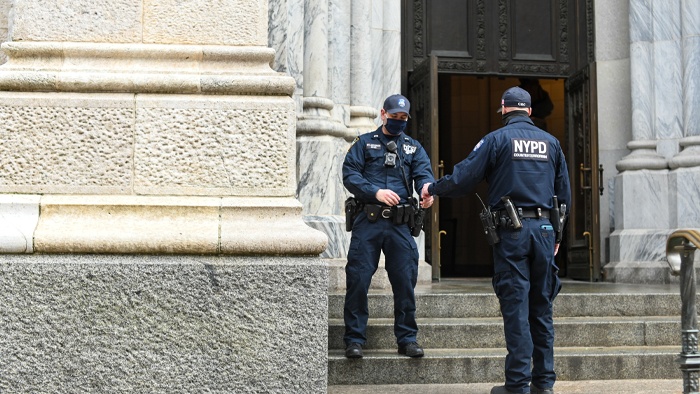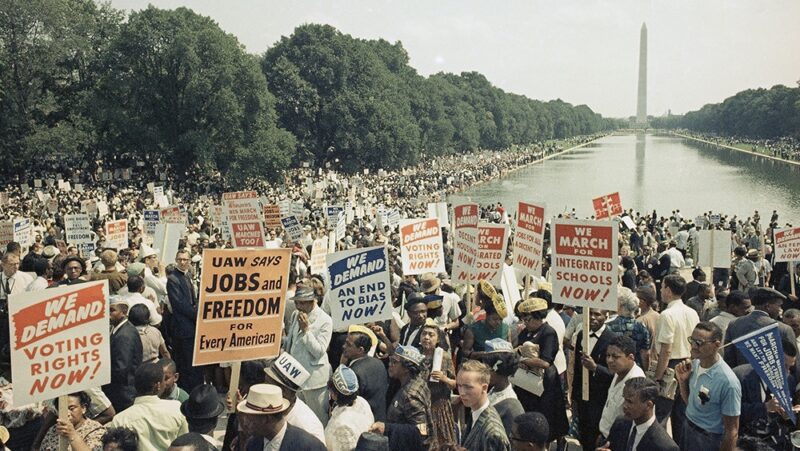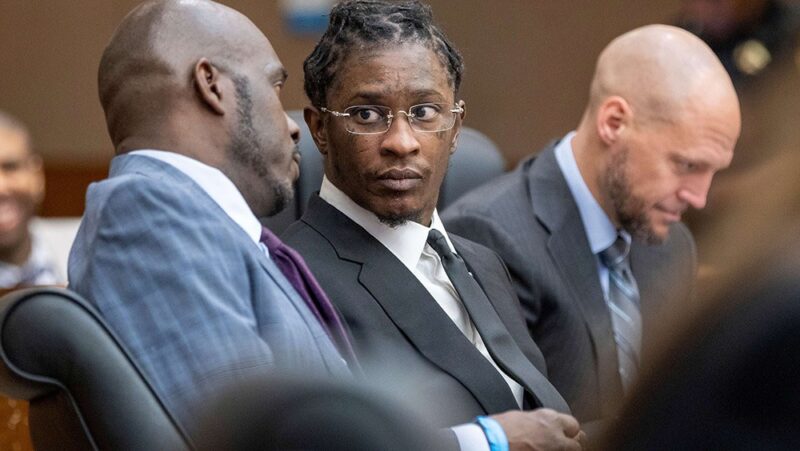Perspective: Restricting Speech in the Name of Safety, from Panic to Pandemic

The terrorist attacks of Sept. 11, 2001 occurred on a Tuesday. By the end of that week, we saw the beginnings of restrictions on First Amendment rights that extended for decades, all in the name of national security. As we endure another national crisis in the form of the COVID-19 pandemic, are we seeing a similar crackdown justified by public health and safety?
The USA PATRIOT Act was an almost immediate federal response to Sept. 11. The 342-page bill was enacted within seven weeks with near-unanimous support. The law amended more than 15 existing federal laws. The law’s most notable impacts on free speech:
- Expanded FBI powers to access library records, web history and bookstore purchase records of foreign agents suspected of spying;
- Prohibited the recipient of a subpoena from disclosing the subpoena’s existence to anyone;
- Allowed the secretary of state to designate foreign or domestic groups as terrorist organizations, even if those groups had never engaged in violent conduct;
- Enabled deportation of any non-citizen who assisted these groups, even in limited ways unconnected to or without knowledge of the group’s suspected terrorist activities.
A New York law, enacted within one week of Sept. 11 and described by the legislature as the “toughest anti-terrorism legislation in the country,” similarly created a new crime for “soliciting support for terrorism,” defining terrorism vaguely as “intimidation or coercion of civilians or units of government.”
Many post-Sept. 11 restrictions went too far
These broad legislative efforts were precursors for more targeted efforts affecting the rights to speak, assemble and petition:
- The Secret Service created “free speech zones,” requiring antiwar protesters to remain in designated areas, often far from the intended recipients of their message;
- Organizers of a peace demonstration in New York City were denied a permit due to a city-wide ban on demonstrations, though a parade went forward the next day;
- Columbus, Ga., sought to shut down an annual peaceful protest outside Fort Benning based on generalized national security concerns, until a U.S. magistrate judge rejected the city’s request.
The scope and breadth of these restrictions on civil liberties went beyond the changes most people agreed were necessary to protect national security, primarily because they were content-based — targeting speech based on the message conveyed. Content-based restrictions on speech are only constitutional if they survive “strict scrutiny review” because they further a “compelling” government interest in a narrowly tailored manner, going no further than necessary to achieve that goal.
While legitimate protection of national security is a compelling interest, many government responses to Sept. 11 were criticized for either using national security as a guise for already-desired restrictions on civil liberties or for failing the second part of this test due to their vagueness or overbreadth. Some even committed the cardinal sin of First Amendment violations — engaging in “viewpoint discrimination,” in which the restriction censors one side but not the other (for instance, by censoring anti-war speech or other dissent, but allowing displays of patriotic affection).
Though some were successfully challenged in court, others like the Secret Service’s free speech zones, were upheld. Some were never challenged. The USA PATRIOT Act was supposed to sunset after four years, but was routinely reauthorized until the bill finally expired in 2020.
Pandemic replaces panic as threat to people and freedoms
2020 was a year that will largely be defined by two things: the COVID-19 pandemic and worldwide protests in the wake of the murder of George Floyd, with the former predictably being used as justification to restrict the latter.
In February 2021, Human Rights Watch reported that 83 countries worldwide, including the United States, used the COVID-19 pandemic to justify restrictions on free speech and peaceful assembly. California Gov. Gavin Newsom issued an executive order requiring “all individuals living in the state of California to stay at home or at their place of residence” subject to certain exceptions, none of which included First Amendment activities. In other words, all gatherings of any size protesting government action were banned. Similarly, the police department of Raleigh, N.C., broke up an April 2020 protest under the justification that “protesting is a non-essential activity.”
There is reason for concern despite the relatively more limited use of COVID-19 as a justification for restricting speech. Whereas post-Sept. 11 restrictions were subject to the strict scrutiny standard of review, attempts to restrict public protest based on protecting public health during a pandemic might be much easier to justify.
More COVID-19 restrictions likely to stand
These restrictions are more “content-neutral” because they do not seek to regulate any particular message. They would therefore be subject to the less strict “intermediate scrutiny” standard of review, satisfied if the restriction furthers an important or substantial (as opposed to compelling) interest and is no greater than necessary to further the interest (as opposed to being the least restrictive method of furthering the interest).
A restriction that is designed to prevent the spread of COVID-19 (for instance, by restricting the number of participants or requiring social distancing) and applied to all speakers equally, regardless of message, is likely to be upheld. For example, the U.S. Supreme Court said New York state could not restrict the number of individuals attending religious services in areas with high virus spread while allowing unrestricted patronage of other businesses in those same zones. The court similarly struck down restrictions in California that, in the words of Justice Neil Gorsuch, “openly impose more stringent regulation on religious institutions than many businesses.”
Former Supreme Court Justice William O. Douglas once warned of a “twilight” phenomenon by which incremental deprivations of rights become permanent, especially when they exist long enough to become “normal” for a new generation. It has been 20 years since Sept. 11. An entire generation has grown up and, in some instances, taken positions of power. So far, it appears they are using that power when it comes to protesting in the time of COVID-19 in a limited fashion to legitimately protect public health and safety. But we have every reason to remain vigilant.
Kevin Goldberg is First Amendment specialist for the Freedom Forum. He can be reached at [email protected].
20 of the Most Famous Protests In U.S. History
Can Rap Lyrics Be Used as Evidence in Court? A First Amendment Analysis
Related Content

